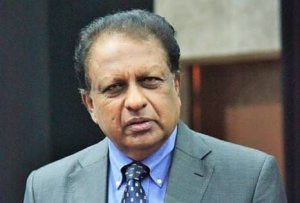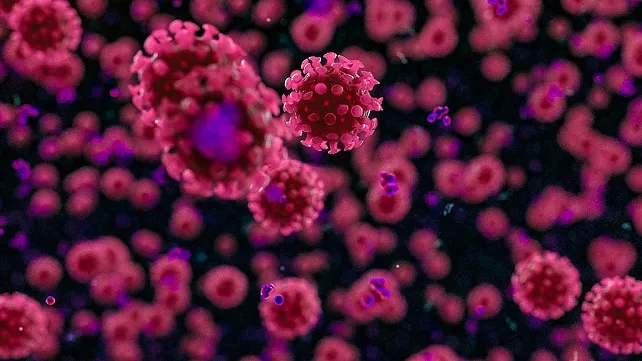
War and Peace Over Covid-19
The first salvo in a China -US war over Covid-19 was fired by an official spokesperson of the Chinese Ministry of Foreign Affairs, who tweeted to insinuate that “it might be US army who brought the epidemic to Wuhan” and added that the United States should “be transparent” and make its data public. The “US owe us an explanation,” he added.
Around the same time , the Prime Minister of India, Narendra Modi, announced an initiative to revive the South Asian Association for Regional Cooperation (SAARC), which was lying dormant for long by inviting South Asian leaders to a video conference to formulate a common strategy to fight Covid-19. The initiative has been welcomed by the leaders of South Asia, including Pakistan, though Imran Khan will only send a representative. If the heads of state and government personally participate, this will be an opportunity for SAARC to come together in an emergency situation.
Both these developments are the game changing consequences of the pandemic, which has gripped the world. The Chinese statements also spoke of a celebration of China’s national response and its implications for the world. China also took credit for combating the virus heroically, giving the world time for international preparedness.
The shifting from complete silence to declaration of a people’s war against the disease and then taking credit for fighting for the international community came as the Chinese government got a grip over the outbreak and ruthlessly dealt with dissenting voices. The President appeared in Wuhan like a commander -in-chief visiting a battlefield to claim victory. He was demonstrating to the world that, far from being ousted, he had strengthened his position as the unchallenged leader of China.
President XI must also be proud that China had brought the disease under control by the time the US and Europe woke up to the reality of their vulnerability to what was considered a yellow disease arising out of the strange food habits of the Chinese. The late declaration of Covid-19 as a pandemic also may have given the Chinese a sense of fulfilment of having nearly conquered the pandemic. The initial charge that the coronavirus may have been unwittingly released by the Chinese in the process of developing a chemical weapon had also to be countered. The direct attack on the US military for introducing the virus into China is a signal that China is back on the frontline to battle the United States for dominance.
Both China and the US are eternally in a state of confrontation, even as they cooperate and collaborate economically. The pandemic will definitely influence trade and economic relations as the equation changes. The impact of the pandemic is as yet uncertain, but both have begun to anticipate changes and to readjust to the gigantic changes in the geopolitical situation. The pandemic is likely to emerge as another sore point between the two countries. A war may well have begun behind the scenes to secure benefits in the forthcoming negotiations on a range of political, economic and military issues. In the meantime, the Chinese propaganda machine will work overtime to discredit the United States.
President Donald Trump is on a particularly weak wicket at this time, so soon after the Namaste Trump jamboree in India, which had energised him after his acquittal from impeachment and virtual disarray in the Democratic camp. Things have turned sour after he underestimated the gravity of the situation and did not set up a machinery to deal with the pandemic. He had thoughtlessly approved John Bolton’s recommendation to close down the Pandemic Task Force in 2018. By the time he realised the gravity of the situation and started the much delayed screening of the US population, the situation had already deteriorated. The situation in China and South Korea did not make an impression on him and he woke up only when the Italians began to be affected in a big way. That is when he realised that this was not just a yellow man’s burden.
By the time President Trump tried to make amends for his criminal failure to take care of his people, he was caught lying and making irresponsible statements. He said, for instance, that he did not shake hands with anyone in India, though thousands of people greeted him, even as he was shown not only shaking hands, but also hugging Prime Minister Modi. Even more embarrassing for him was the fact that an aide to President Bolsonaro of Brazil was found infected by the virus after a meeting with him in Florida. He made matters worse by refusing to be tested even after the evidence of his proximity to the virus. When he ordered massive testing for Americans and imposed a travel ban, it looked too little too late. His incompetence to continue as the President of the US for another term is there for all to see. China saw an opportunity to pounce on him. The emergence of Joe Biden in the Democratic primaries also came at the same time.
In the case of Prime Minister Narendra Modi, the pandemic came with a silver lining. Considering India’s proximity to China, the pandemic has remained under control because the precautions taken in many states. The number of infected people is still small. The pandemic also gave him some respite from his other preoccupations like Article 370 and the Citizenship Amendment Act, which had inhibited him from taking any foreign policy initiative for some time. He quickly pulled out a rabbit from his hat to propose a revival of SAARC, which was a sure winner. "I would like to propose that the leadership of SAARC nations chalk out a strong strategy to fight the coronavirus. We could discuss, via video conferencing, ways to keep our citizens healthy. Together, we can set an example to the world, and contribute to a healthier planet," he tweeted.
His “neighbourhood first” policy suddenly came alive after it had become dormant after the Pakistani terrorist attacks. As China was fighting the pandemic, PM Modi was also mending his fences with Sri Lanka, Maldives, Bhutan and Nepal, who responded enthusiastically to his tweet for a video conferencing on Kovid-19. Pakistan was embarrassed into accepting the initiative, though not at the summit level. "The threat of Covid-19 requires coordinated efforts at a global and regional level. We have communicated that the SAPM on Health will be available to participate in the video conference of SAARC member countries on the issue,” was the lukewarm response of Pakistan.
Whether the initiative by PM Modi results in controlling the pandemic or reviving SAARC, the initiative has enhanced his reputation, while his “close friend”, President Donald Trump has lost ground, all in one week.

